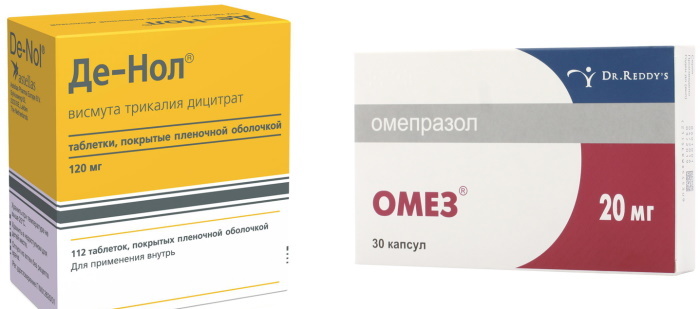Content
- What is gastritis and the reasons for its development
- Exogenous causes
- Endogenous causes
- Symptoms of acute gastritis
- Classification and stages of development of acute gastritis
- What provokes an exacerbation of the disease
- Seasonal addiction
- Diagnostics
- Treatment of acute gastritis with medicines
- Atrophic gastritis
- Erosive
- Slimy
- Surface
- Fibrinous
- Antalya
- Catarrhal
- Subatrophic
- Supplements for the treatment of gastritis
- Folk remedies
- Diet
- How to eat properly with gastritis?
- Predictions in the absence of treatment, with timely therapy
- Video about gastritis
Exacerbation of gastritis is caused by violation of the activity of the endocrine glands and the whole intestine, accompanied by symptoms such as pain, dyspepsia, nausea. Treatment is carried out at home or in a hospital.
What is gastritis and the reasons for its development
Gastritis is a general term used to refer to inflammation of the stomach lining. The disorder is caused by organic and functional factors. The result of gastritis is a violation of the digestive process, deterioration of the general condition, fatigue, a feeling of fatigue. Gastritis often turns into an acute stage, then into a chronic one, and later a stomach ulcer develops.
There are 2 forms of gastritis: chronic and acute. Acute gastritis is diagnosed upon initial detection. If untreated, the acute stage becomes chronic.
The most significant cause of the pathology is infection with the Helicobacter pylori bacterium. Helicobacter causes destruction of the walls responsible for the production of hydrochloric acid in the stomach cavity. A change in its concentration negatively affects the process of food digestion.
An exacerbation of gastritis (symptoms and treatment always depend on the initial triggers) is often triggered by unhealthy diets. This is the second significant factor in the development of the disease. Lack of regular meals, overeating, malnutrition, or excessive consumption of spicy, fatty foods leads to malfunctioning of stomach cells.
Disruption to work results in a feeling of fullness in the upper abdomen, feeling full while eating earlier than expected, or loss of appetite. All of this is accompanied by bloating, belching, nausea, or heartburn.
Exogenous causes
Exogenous or internal factors affecting the development of the disease:
- Violation of the food intake: irregular meals, significant intervals between meals, overeating.
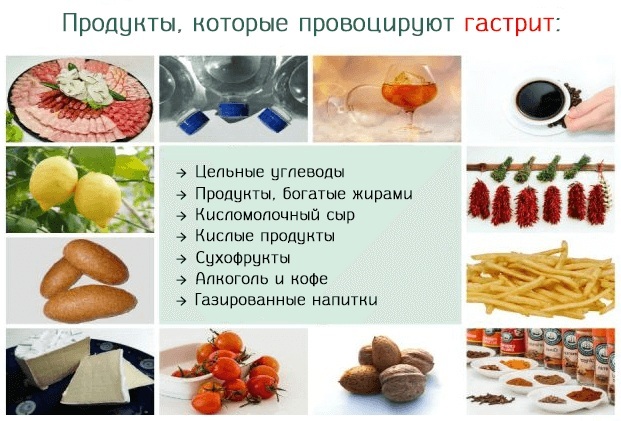
- Long-term use of drugs (salicylates, glucocorticoids, NSAIDs, cytotoxic drugs, pyrimidine drugs).
- Stressful situations - school and extracurricular activities, unfavorable family environment, conflicts with peers.
- Hypokinesia.
- Food allergy - increased exposure to histamine, excessive activity of the kallikrein-kinin system.
- The presence of foci of chronic infections.
- Hereditary factors
Endogenous causes
Factors affecting the development of the disease associated with the physiological state of the body:
- Failure of regulation of the central nervous system and its autonomic divisions (post-traumatic encephalopathy, hypothalamic syndrome, neuroses, neurotic states) lead to disruption of the motor and evacuation function of the gastroduodenal Gastrointestinal tract.
- Endocrine diseases (diabetes mellitus, hypothyroidism, endemic goiter, Itsenko-Cushing's syndrome, obesity, pathology of the adrenal glands and gonads) increase the value of the acid-peptic factor. This increases the production of acid in the stomach and the level of hormones that regulate motor function (secretin, cholecystokinin, motilin).
- The presence of duodenogastric reflux, as a result of which pancreatic enzymes damage the mucous membrane. This increases the level of histamine and thromboxane, and they, in turn, increase the hyperemia and edema of the gastric mucosa.
- Chronic diseases, accompanied by the development of circulatory failure (heart and respiratory failure with tissue hypoxia).
- Allergic and autoimmune diseases - vasculitis, localized in the vessels of the stomach and duodenum.
- Changes in the phagocytic link of immunity, violation of the ratio of T-cell subpopulations of cellular immunity.
- Operations on the abdominal organs.
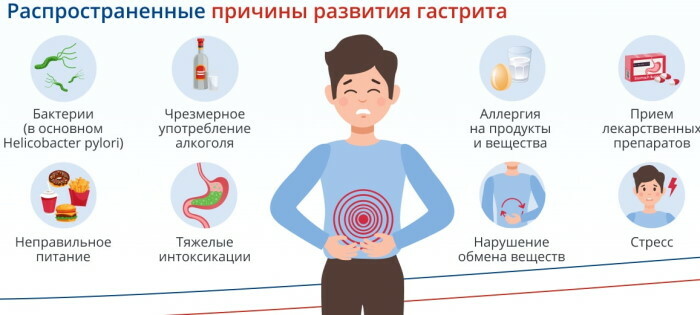
Exacerbation of gastritis, the symptoms and treatment of which depend on the severity, also occurs under the influence of aggressive factors. These include hydrochloric acid, pepsin, bile acids, amino acids.
Symptoms of acute gastritis
Newly diagnosed or exacerbated chronic gastritis is characterized by the following symptoms:
- pain in the epigastric region;
- vomiting or nausea;
- the presence of blood in the vomit;
- flatulence or bloating;
- the presence of an unpleasant taste in the mouth;
- belching;
- stool change;
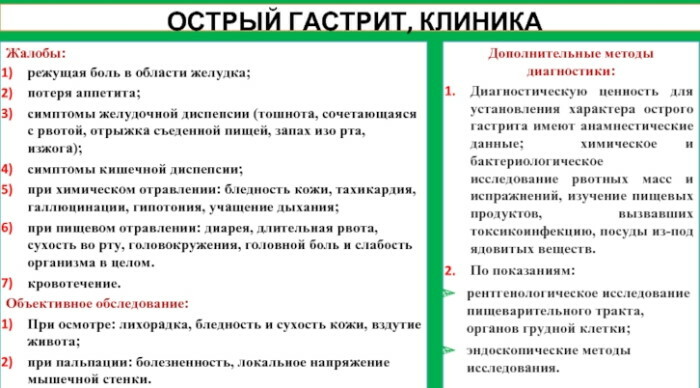
Exacerbation of gastritis. Symptoms and Treatment - heaviness in the abdomen;
- dizziness, general weakness;
- change in appetite;
- increased body temperature.
Classification and stages of development of acute gastritis
The development of acute gastritis in the absence of treatment proceeds according to a certain scheme. The change in stages depends on the degree of damage to the walls of the stomach.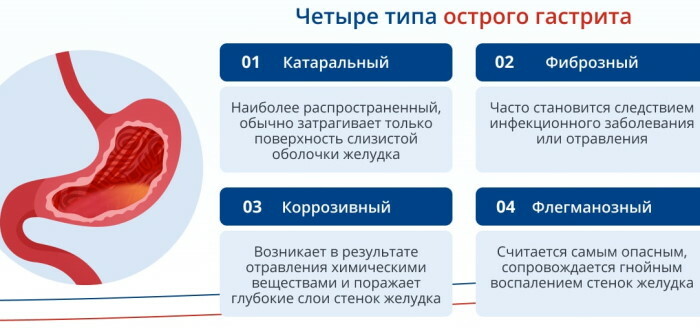
Types of gastritis:
- Catarrhal or simple form characterized by superficial lesions of the gastric mucosa.
- Acute inflammation spreads throughout the mucous membrane or in parts that are affected by negative factors.
- Fibrinous gastritis (diphtheria) develops with acid poisoning or in connection with a complex infectious disease. In severe cases, fibrin-protein films form on the inner surface of the stomach.
-
Erosive form characterized by the formation of erosions - small manifestations on the walls of the stomach. They do not affect the deep layers and, after healing, do not leave scars. Erosive gastritis is dangerous with complications. Multiple erosions lead to gastric bleeding and the development of hemorrhagic gastropathy.
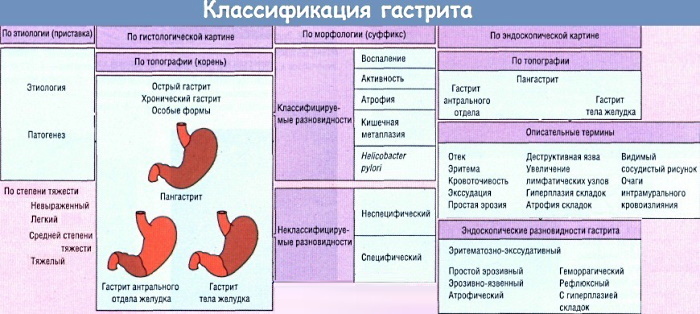
- Phlegmonous stage or purulent inflammation develops due to mechanical contact of an aggressive agent with the stomach wall. This could be fish bone or some other foreign agent. The appearance of a high fever and unbearable pain are the main symptoms of the stage
What provokes an exacerbation of the disease
Many different diseases and irritants, acting alone or in combination, cause inflammation of gastritis.
Some of the more common triggers include:
- non-observance of nutritional rules;
- uncontrolled intake of medications;
- bad habits;
- injuries received;
- the development of allergic reactions.
Seasonal addiction
Gastritis is most often exacerbated in the spring and summer. This is due to the fact that in spring the body is most vulnerable to negative environmental factors. At this time, the body is weakened, deprived of vitamins. Against the background of reduced immunity, the symptoms of the inflammatory process develop much faster. To exclude the participation of Helicobacter, one should not delay the diagnosis and treatment during this period.
In the summer, gastritis worsens, because at this time a person is as relaxed as possible, he allows himself to not comply with the diet and diet. Frequent consumption of fatty meats, dry snacks, spices, marinades, sauces, drinking alcohol - all this contributes to the development of the inflammatory process. Certain fresh fruits and vegetables can irritate the stomach. In addition, in the summer, the risk of intoxication, food poisoning, and dysbiosis increases.
Diagnostics
To make a diagnosis, you must undergo a comprehensive examination. It includes esophagogastroduodenoscopy (EGDS) - a visual examination of the gastric mucosa. A general and biochemical blood test shows the presence of inflammation and the presence of a bacterial infection.
- The analysis of feces for occult blood determines the presence of erosions and gastric bleeding.
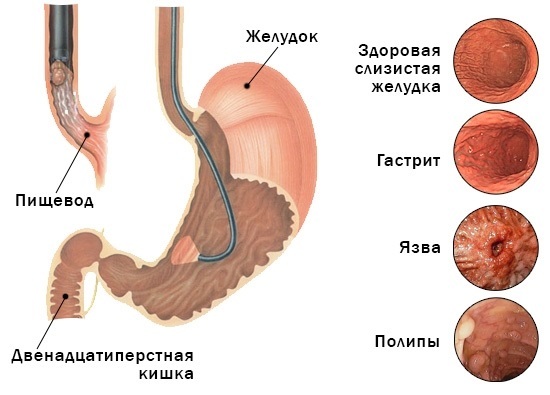
- A general urinalysis is necessary to differentiate between bacterial gastritis and autoimmune.
- Histological and cytological examination of a biopsy of the gastric mucosa reflects the depth of damage to the membrane by aggressive factors.
- To make a diagnosis of bacterial gastritis, a Helicobacter pylori test is required.
To get an idea of the severity and prevalence of mucosal inflammation, the use of the GastroPanel is recommended.
This is a comprehensive biochemical test that can confirm a clinical suspicion of gastritis.
| Indicators | PGA | PGC | G-17 | Anti-H pylori |
| Normal mucous membrane | Normal | Normal | Normal | Normal |
| Atrophic gastritis | Short | Normal | High | Normal or high if H. Pylori |
| Chronic atrophic gastritis | Short | Short | Short | |
| Non-atrophic gastritis | High | High | Normal or high |
The study is based on the measurement of serum pepsinogens A and C (PGA and PGC), gastrin-17 (G-17) and anti-H Pylori. All of them are involved in the analysis of the classification algorithm.
Treatment of acute gastritis with medicines
Exacerbation of gastritis (symptoms and treatment depend on the concentration of hydrochloric acid in gastric juice) not requires surgical intervention, except in cases of phlegmonous or acute necrotic forms. In the latter case, surgery with resection of the affected area may be the most effective treatment.
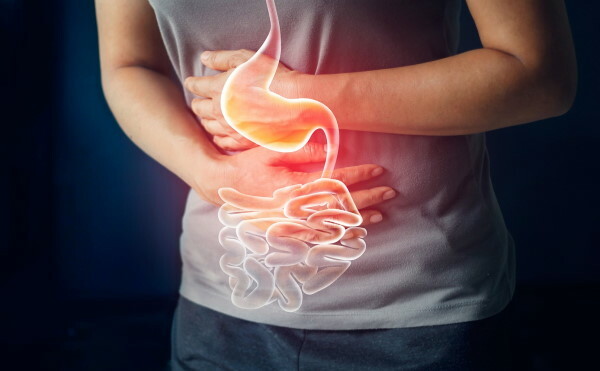
There is no specific therapy for acute gastritis, except for cases caused by H. Pylori. If necessary, prescribe drug therapy for patients with acute gastritis, depending on the underlying cause and pathological data. First, pain relievers are used, then sorbents are used to neutralize aggressive factors. In addition, it is proposed to undergo a course of vitamin therapy for a general increase in immunity.
Almagel is a fairly effective drug that quickly eliminates the exacerbation of gastritis. It reduces acidity, relieves inflammation, and normalizes digestion processes. For the prevention of exacerbation, you should take 1 sachet 1 time per day. If gastritis is in the acute stage, it is required to take 1 sachet 3-4 times a day.
Atrophic gastritis
Atrophic gastritis is a histopathological disorder characterized by chronic inflammation of the mucous membrane stomach with the loss of glandular cells of the stomach and their replacement with intestinal epithelium, pyloric glands and fibrous cloth.
With this form of gastritis, dietary table number 2 should be followed, the purpose of which is to provide the body with all the necessary complex of trace elements, vitamins, proteins, fats and carbohydrates.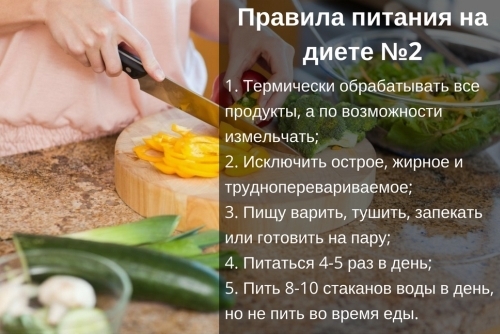
With a focal form, a diet number 1a is prescribed, after a while the patient is transferred to a diet number 2. In addition, drinking mineral water, such as Narzan, Essentuki-4 or Essentuki-17, is recommended 15-20 minutes before meals. This technique helps to stimulate the work of the intact glands.
Erosive
First line therapy to eradicate H. pylori infection consists of four bismuth therapy with a proton pump inhibitor (PPI). Suggested Nitroimidazole and Tetracycline for 10-14 days or triple therapy based on Clarithromycin with Amoxicillin or Amitronidazole and PPI for 14 days.
Other first line options are:
- Concomitant therapy - 14 days of taking Clarithromycin, Amoxicillin and Nitroimidazole.
- Consecutive - first week with Amoxicillin and second week with Clarithromycin and Nitroimidazole.
- Hybrid therapy - Amoxicillin for 14 days, then the addition of Clarithromycin. The nitroimidazole is supplemented in the second week.
Antacids protect the stomach lining, such as Almagel or Maalox. Enzymatic preparations normalize the digestion process: Mezim, Panzinorm or Enzistal.
In the presence of erosion, hemostatic agents are prescribed - Vikasol, Etamzilat. To accelerate the restoration of stomach tissues, the reparative agents Iberogast, Gastroguttal, Hilak forte are used.
Slimy
Drugs for the treatment of mucous gastritis are selected individually. With a decrease in acidity, Cytochrome C, Nicotinamide, Pyridoxine are prescribed. In case of increased acidity of the stomach, Omez, Vikalin, Tsiprolet are used.
Rennie, Fosfalugel, Almagel are used to relieve heartburn. For pain relief - No-Shpa, Duspatalin, Pentalgin. Cerucal and metoclopramide help to stop vomiting.
Surface
The inflammatory process that affects the mucous membranes of the stomach is found in almost 70% of people after 26-28 years.
In men, this disease is more often associated with an improper and monotonous diet, as well as with the presence of bad habits. Women often develop superficial gastritis after all dietary changes associated with fasting and restricted weight loss diets. In children - due to hereditary pathology or dietary restrictions.
Exacerbation of gastritis (symptoms and treatment depend on the form of the disorder) is treated with conservative therapy, which involves taking certain medications:
- With antibiotic therapy, Metronidazole, Sumamed, Nemomycin are prescribed.
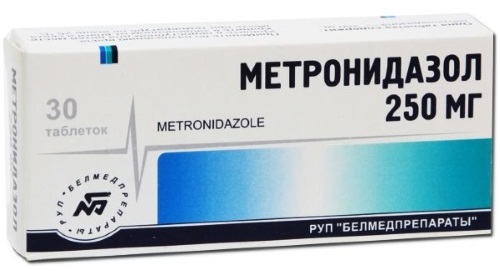
- Preparations that restore the gastric mucosa: Omez, Famogidin.
- With low acidity, they resort to the help of enzymes: Pepsin, Enzistalu.
- Also, preparations based on bismuth are prescribed, which reduce the negative effect of gastric acid on the walls: Gastrofarm, Alanton, De-Nol.
Fibrinous
A rare form of the disease that occurs with poisoning. Measures are taken to detoxify the body and counteract metabolic shift. In the case of bacterial infection, tetracycline antibiotics or macrolides are used.
Antalya
While most types of gastritis develop throughout the entire mucosa, the antrum affects only one area of the stomach.
Forms of gastritis:
- Antral superficial. Also known as catarrhal or simple gastritis.
-
Antral erosive. Characterized by scars and rashes, this form is considered difficult to treat. It is estimated that about 85 percent of patients are infected with the ulcer-causing bacteria Helicobacter pylori.
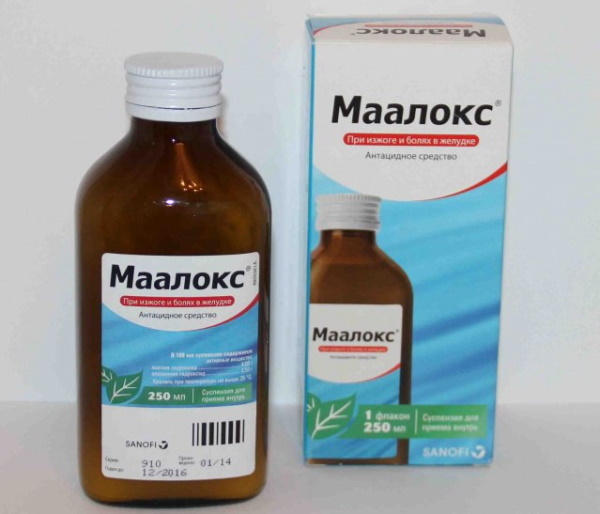
Maalox
To get rid of the infection, first of all, antibacterial drugs are prescribed for 10-14 days: Tetracycline, Metronidazole. Then antacids: Almagel, Reni, Maalox. At stage 3, proton pump inhibitors are prescribed: Omeprazole, Nexium, Ortanol, Sanpraz.
Catarrhal
Exacerbation of gastritis (symptoms and treatment in children, adults should be discussed only with a specialist) may be caused by a single exposure to various harmful factors (bacterial, food, viral, chemical, temperature).
The tactics of doctors depends on how severe the disease is:
- With a mild form of the disease, doctors often do without gastric lavage. First, you need to give up food for 1-2 days. This allows the stomach to empty and eliminate the effect of its contents on the walls. Then gradually grated cereals, juices, meat soufflé are introduced into the diet. As the patient's well-being improves, the food becomes more varied, and the person returns to normal food.
- With catarrhal gastritis of moderate severity, gastric lavage is necessary. Further, the tactics are approximately the same as in the previous case, but any new product should be introduced into the diet with greater caution.
- Severe intoxication forces doctors to resort to intravenous administration of glucose solution or Ringer's solution to improve well-being. The stomach is washed with warm water or soda. After several days of fasting, the patient begins to receive small portions of juice, mashed porridge and other sparing food.
The often advanced form of catarrhal gastritis leads to serious complications, for the elimination of which surgical treatment is indicated.
Subatrophic
This is a disease in which certain parts of the gastric mucosa and glands that produce hydrochloric acid and pepsin atrophy. As a result, acidity decreases, the walls of the stomach become thinner and its function - food processing - is not performed properly.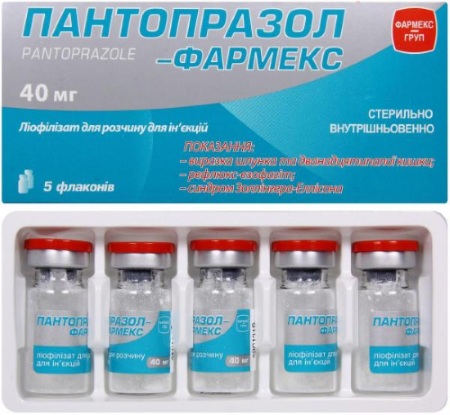
First, etiotropic therapy is carried out, aimed at eliminating the cause of the disease. If the causative agent is the Helicobacter bacterium, then drugs are used to target it. destruction, proton pump inhibitors, healing damaged tissues: Pantoprazole, Rabeprazole, Lansoprazole. And also prescribe antibiotics Clarithromycin, Amoxicillin.
If the cause of the disease is autoimmune, then the disease is treated with injections of vitamin B12 and iron for infusion.
Diet therapy plays an important role in the treatment of subatrophic gastritis. In the period of exacerbation, a strict diet number 1 is applied, in the future - a less strict diet number 2.
Supplements for the treatment of gastritis
Biologically active additives (BAA) help in complex therapy. They activate biochemical processes in cells and stimulate the recovery process.
- Vitamin C reduces inflammation and boosts immunity. In addition, it provides the restoration of the collagen structure necessary for the healing of erosions.
- Fat-soluble vitamins improve the healing of mucous membranes. Preparations in the form of natural oils increase immunity and anti-inflammatory effect.
- Vitamin U is prescribed by a gastroenterologist. Its use promotes the speedy healing of microcracks and prevents the appearance of scar tissue.
Folk remedies
An exacerbation of gastritis (symptoms and treatment are discussed with a doctor beforehand) can be treated with home remedies. Many herbs strengthen and tone the body's systems. Herbs can be used in the form of dried extracts (capsules, powders, or teas), glycerides (glycerin extracts), or tinctures (alcoholic extracts).
Folk remedies will not help completely cure gastritis, but they will facilitate and speed up the healing process. As with any therapy, you should consult your doctor before starting treatment.
Common recipes:
- Diluted with water in a 1: 1 ratio, sea buckthorn juice is taken 30 minutes before breakfast or dinner.
- A solution of warm milk with 1 tbsp. l. mountain wax (mummy) is taken three times a day.
- Potato juice is drunk on an empty stomach, ½ cup.
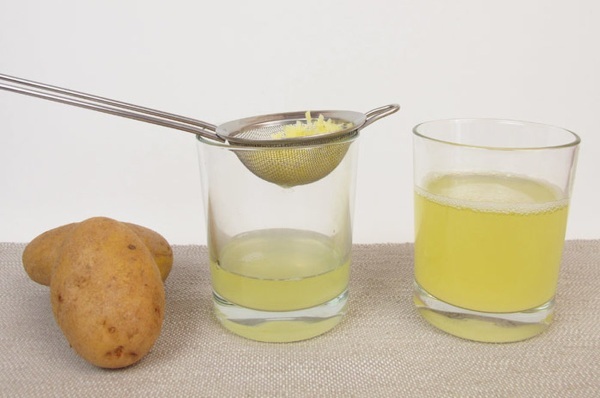
- Propolis alcohol tincture, diluted 1/2, is taken before meals for 1 tbsp. l.
- Honey mixed with aloe is taken in 1 tbsp. l. before meals.
Diet
A doctor is responsible for prescribing a diet for acute gastritis. At the beginning of treatment, it will take 1-2 days of healing fasting. Further, lightly salted soft cereals are included in the diet. After 2-3 days, porridge can be boiled until steep and boiled or steamed meat and fish can be added. During treatment, boiled vegetables and butter are added to the diet. Jelly and jelly have a therapeutic effect on the gastric mucosa. They are allowed to be consumed without restrictions.
Carbonated, alcoholic drinks, strong coffee and tea are excluded from the diet. Fatty broths, citrus fruits and gas-producing foods should also be avoided.
It is forbidden to eat fried and coarse foods, fresh fruits and vegetables, lean meat and bran bread.
How to eat properly with gastritis?
A balanced diet is the key to successful treatment. Meals should be systematic, on an ongoing basis. Small portions are better absorbed and do not burden the stomach.
Food must be thermally processed, even if vegetables and fruits are used. The use of fatty, heavy, fried foods is not recommended. Ideally, food should be steamed.
All food is served warm to minimize stomach aggressions. The optimum temperature is 15-60 ℃. Eating cold or hot food injures the healing walls of the stomach and leads to another exacerbation of gastritis.
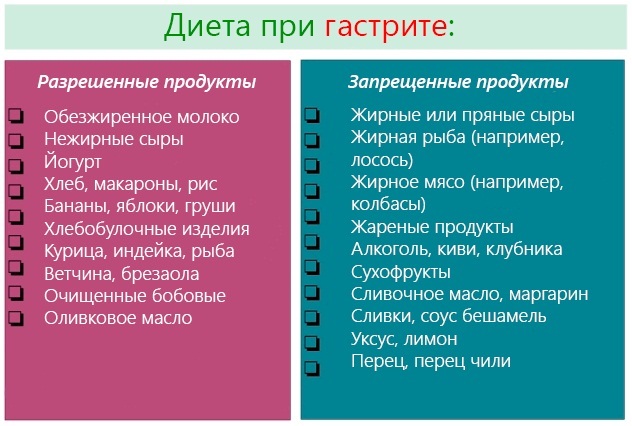
Don't forget about water balance. You should consume a sufficient amount of liquid in the form of boiled water or mineral water without gas.
Predictions in the absence of treatment, with timely therapy
Catarrhal gastritis has a favorable prognosis. With timely treatment started, the disease quickly ends with a complete recovery of the injured organ and the patient's recovery. Advanced forms of inflammation do not always have a good prognosis, since without medical assistance they can lead to fatal cancer pathologies.
The acute phase of superficial gastritis with a competent and timely approach is cured in about 4 days. If you ignore the therapy, the course of the disease can be complicated, up to the development of a chronic inflammatory process, which must be fought all life.
The prognosis of chronic gastritis is usually good. Precancerous changes in the mucous membrane (intestinal metaplasia and dysplasia) are dangerous against the background of atrophic gastritis. Timely treatment of malignant anemia that develops in chronic atrophic autoimmune gastritis, in the overwhelming majority of cases, helps to prevent development that is unfavorable for the patient events.
The negative prognosis of subatrophic gastritis is that the degenerated epithelial cells never transform into healthy glandular cells. Also, with a deficiency of vitamin B12, malignant anemia and the degeneration of damaged cells into malignant cells can occur. The advantage is that timely treatment prevents the progression of gastric dyspepsia.
Gastritis is a dangerous and unpleasant disease. Its exacerbation leads to a deterioration in the patient's quality of life. Pain symptom, nausea, stool disorders and heartburn are the reason for diagnosis and proper treatment.
Video about gastritis
Gastritis. Symptoms, diagnosis and treatment:



